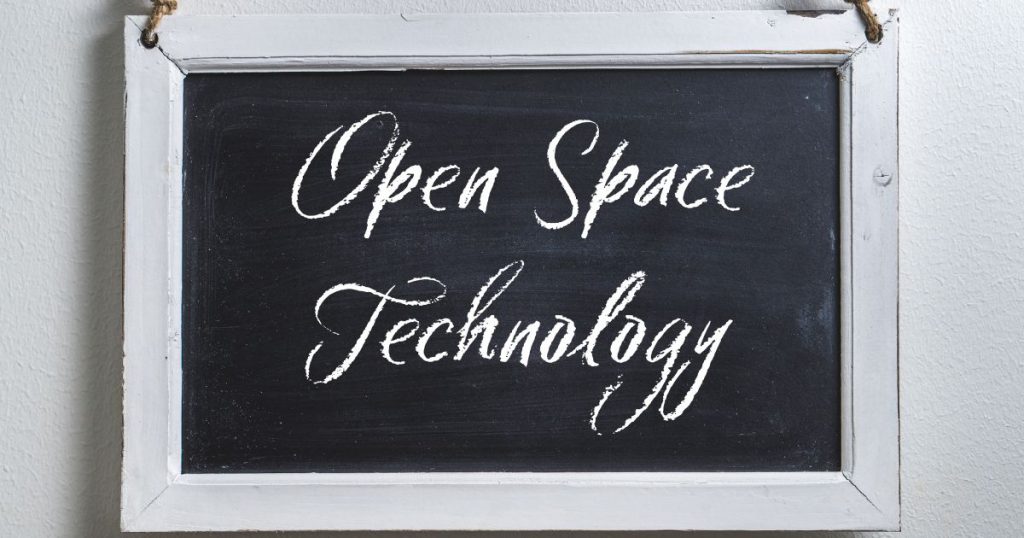Why do we love Open Space Technology? It’s a different format for hosting meetings, more of a participative process, than the presentation style many have experienced. It works better when you have a facilitator to co-ordinate, who is also trained in Open Space facilitation.
If you’ve never come across the concept of Open Space Technology before and you’re familiar with a formal style of hosting meetings, it can seem quite daunting to have to facilitate or even participate in a session that uses Open Space.
Contents
1. This style of facilitating perfectly fits our ethos
Our ethos is that ‘We work with people and organisations and not for them’.
Open Space Technology is a style of facilitation that allows a group of individuals to be completely self-organised in reaching goals. This is achieved with barely any input from the facilitator, who will do little more than outline the guiding principles of Open Space Technology, introduce the over-arching topic/theme/purpose of the meeting and then let the group get on with it. This technique has been used around the world in meetings of 5 to 2000 people.
There is no formal agenda and no ground rules, except for the Law of Two Feet, that is: “If at any time during our time together you find yourself in any situation where you are neither learning nor contributing, use your two feet, go someplace else.” (Harrison Owen)
Owen’s Tedx Talk ‘Dancing with Shiva (or Sandy, or Katrina)’ is a great starting point for any facilitator or practitioner interested in this method.
2. This Technique has been Successfully Used at Multiple Sessions
This technique is excellent because it really allows anyone who attends a session to speak about what they want. Open Space gives people a platform to do this without a facilitator poking their nose in (as it may be perceived) if a conversation goes off-topic or a discussion changes course, therefore shifting the power away from one person and sharing it amongst a group.
We’ve always had success using Open Space, at our most recent open space networking events there was a wide variety of topics that people brought to the meetings that we held; including:
- How can we work more creatively – changing work structures
- Fair treatment for Women in male-dominated industries – recognition of rights
- Social housing has years of experience of engagement – this needs to be shared
- Support for adults with autism who don’t qualify for Government support
- Getting information to the right people in the right way
- Making our work more newsworthy
- How to engage young people as volunteers
- Community initiatives – engaging with a community in poverty (especially unsuitable housing)
- Home or hospital – what is better for patients and staff?
3. The Online Community
There is a huge online community for facilitators and practitioners who use or are interested in Open Space Technology, which includes a very active e-mail discussion list and a Google Group – no organisation or individual owns or controls this collective information and it truly is an ever-expanding knowledge-base. I’ve been part of the e-mail discussion list for just over a month and although I haven’t contributed anything, during my time spend ‘lurking’ I have learnt so much about situations where Open Space has been used successfully. Anyone can read the archives from this list, which date back almost 20 years so there is a huge amount of user-generated information there!
4. Open Space Technology is so much fun
As a facilitator, it’s great to look around the room and observe meaningful, organic and productive discussions which are taking place.
As a participant, it’s wonderful to have the opportunity to talk about things in an informal environment. Even with careful facilitation with lots of open questions asked it can still be difficult to get your point across if other participants have a louder voice than you. In an open space environment, participants can use the law of two feet to move away from unproductive discussions.



